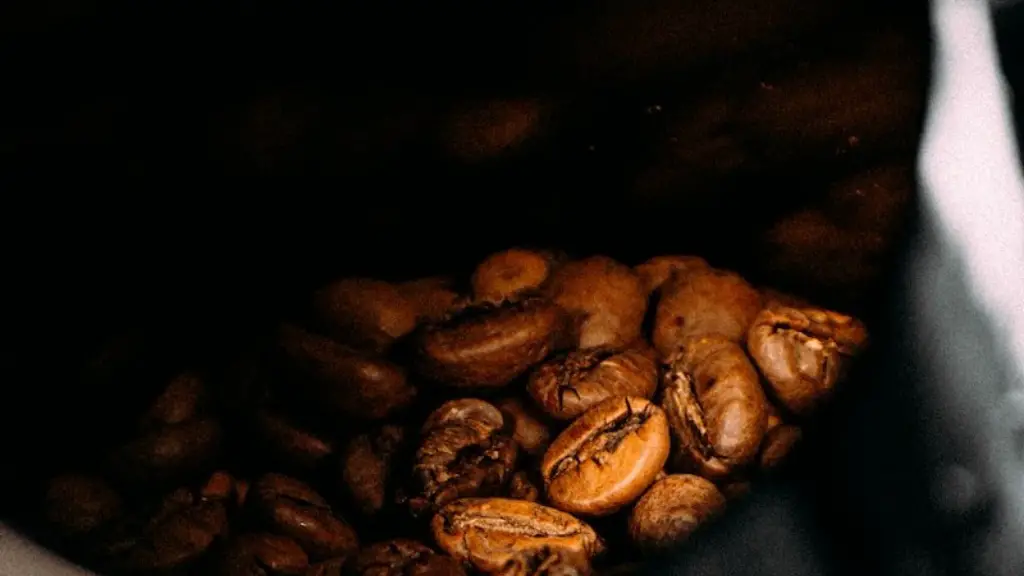Coffee In Kids
Coffee is one of the most beloved drinks in the world. People of all ages and backgrounds enjoy sipping on this beverage, but there is debate as to whether or not children under the age of 18 should be allowed to drink it. There are potential risks associated with caffeine intake in kids, so it is important to make an informed decision.
From the medical perspective, there are a few things to consider before allowing a child to drink coffee. According to the American Academy of Pediatrics, children and adolescents under 18 years of age should avoid caffeinated beverages, as caffeine is a stimulant drug and can have short-term and long-term impacts on health and development. Short-term effects can range from sleeplessness, restlessness, irritability, and nausea. Long-term effects can be as serious as heart and hormone irregularities, behavior problems, and mental health issues.
Nutritional science experts disagree with this opinion. They argue that a moderate amount of caffeine in an elementary or middle schooler is not going to have adverse effects. In fact, research has found that small amounts of caffeine may have positive effects. Studies have found that caffeine improves alertness and can even increase focus and concentration in the classroom. In addition, coffee has antioxidants that can be beneficial, although it is certainly not a “superfood” and should not replace fruits and vegetables.
Parents of children and adolescents should look at multiple perspectives on this issue before deciding to allow their kids to drink coffee. It is pertinent to note that most commercially available coffee beverages are laden with sugar, artificial flavors, and other unhealthy ingredients. Therefore, if parents decide to allow their children to consume coffee, it should be in the form of plain, black coffee, which does not usually have potential negative effects, although it is still important to consider the medical perspective.
Caffeine Alternatives
If parents do not wish to give their children coffee, there are many non-caffeinated alternatives. For example, herbal coffee substitutes, such as chicory root coffee or dandelion root coffee, can provide a coffee-like flavor without the stimulant effects of caffeine. Additionally, many companies now offer decaffeinated coffees, so parents can choose to provide decaf coffee if they prefer.
Alternatively, there are other non-caffeinated beverages that can provide a coffee-like flavor to children and teenagers. For example, iced or hot chocolate can be a great way to mimic the flavor of coffee without the adverse effects of caffeine. Other options include espresso drinks, like cappuccino or macchiato, made with non-dairy milks.
Setting The Right Example
Parents should also think about how their own behavior will impact the opinion their children form of coffee. In other words, if children witness their parents drinking coffee, they might assume that it must be safe, even if the parent has told them otherwise. Therefore, it is important to be consistent in how you speak about coffee to your kids and make sure that you are setting a good example for them to follow.
Educating Kids About Coffee
If parents wish to allow their children to consume coffee, they should also be sure to educate their kids about the beverage. It is important to teach them to understand why it should be consumed in moderation, as well as what effects it can have on their bodies and minds. Kids should also be taught to pay attention to how their bodies are feeling after drinking and to make sure that they are making healthy choices.
Observing and Monitoring Intake
Parents should observe and monitor their child’s coffee intake, even if it is in moderation. Allowing your child to get used to having coffee from a young age can lead to addiction, so it is important to ensure that it does not replace water or other healthy beverages in their diets.
Coffee As A Reward
It is also important for parents not to reward their kids with coffee. It might seem like a harmless way to provide motivation, but it can actually send a dangerous message to the child, who may start to rely on coffee in order to reward themselves.
Consulting With A Pediatrician
Many experts recommend consulting with a pediatrician before allowing a child to consume coffee, as they can provide unique insight into the issue. Pediatricians understand the long-term effects of caffeine consumption in children and can provide valuable advice to parents facing this issue.
Scheduling And Dosing
If parents do choose to allow their kids to drink coffee, it is important to set proper scheduling and dosing guidelines. The American Academy of Pediatrics suggests that kids should not drink more than 100mg of caffeine per day and should not consume it too close to bedtime.
Be Mindful And Set Limits
Perhaps the most important takeaway is that parents need to be mindful and set limits when it comes to their child consuming coffee. It is a good idea to carefully consider all of the factors at play before allowing a child to drink coffee, and it is always important to make sure that the child understands the potential repercussions of regularly consuming the beverage.


